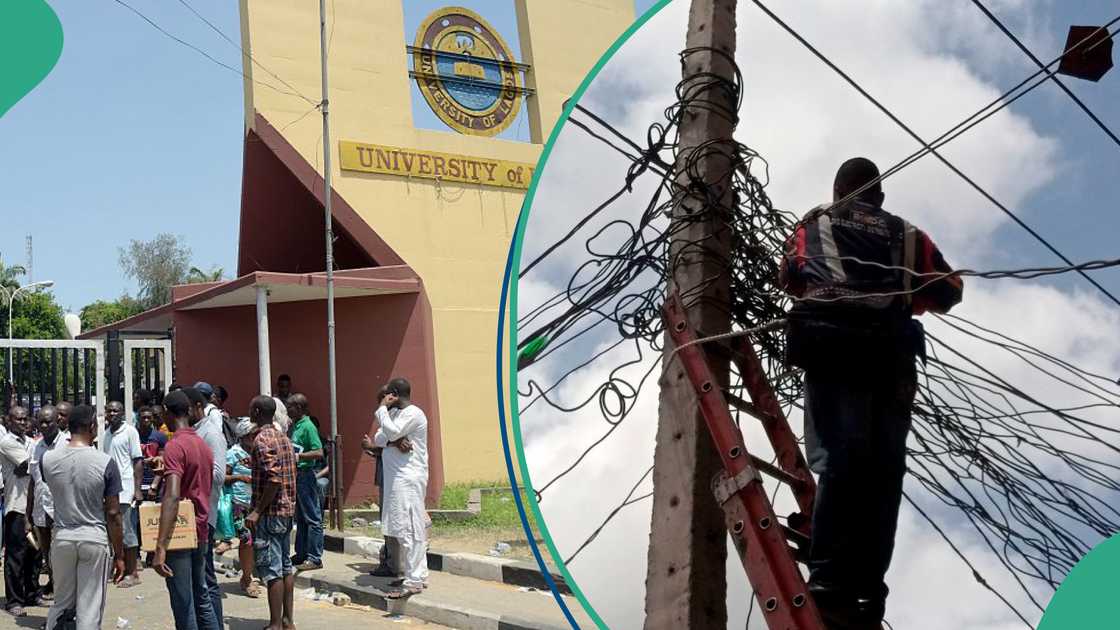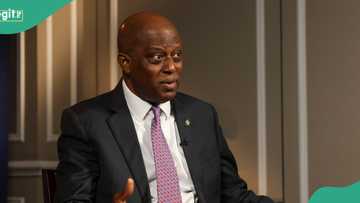Band A: Eko DisCo Explains Decision To Cut Off Power Supply to UNILAG Despite N180m Payment
- Eko DisCo has decided to cut off power to the University of Lagos due to unpaid debts exceeding N1 billion
- The electricity company also revealed that the University of Lagos's move from Band B to Band A tariff followed due process
- The 61-year-old university has been enjoying 23 hours of daily electricity supply, which has also increased bills
Don't miss out! Join Legit.ng's Sports News channel on WhatsApp now!
Legit.ng journalist Dave Ibemere has over a decade of business journalism experience with in-depth knowledge of the Nigerian economy, stocks, and general market trends.
Eko Electricity Distribution Company (EKEDC) has defended its decision to disconnect the power supply to the University of Lagos (UNILAG).
In a statement released, the electricity company explained that the institution has over N1 billion in electricity debt.

Source: Getty Images
It noted that although the institution paid N180 million for the month of July, the disconnection on August 27, 2024, occurred due to recurring accumulated debts.
The company emphasized that the payment made by UNILAG only partially addressed the university’s substantial debt, currently totalling N1,035,197,446.43.
Part of the statement reads:
“UNILAG was disconnected from the power grid on Tuesday, August 27, 2024, due to recurring accumulated outstanding payments and following multiple engagements between the UNILAG team and EKEDC."
EKEDC also noted that it had issued disconnection notices multiple times, engaging key university officials, including Vice-Chancellor Prof. Folasade Ogunsola, Director of Works Engr. Olaniyi, and Head of the Technical Department Engr. Ajayi, in discussions aimed at resolving the issue.
How UNILAG was moved to Band A?
EKEDC also addressed concerns regarding UNILAG’s migration from Band B to Band A tariff, asserting that the change was made following due process and in compliance with regulatory standards.
The electricity company noted that the change reflects the institution’s average 23 hours of electricity supply.
EKEDC explained that UNILAG’s request to remain on Band B was not feasible as tariff classifications are determined based on supply availability.
The company highlighted that it provides power to UNILAG through two dedicated feeders, ensuring a consistent supply aligned with Band A criteria.
Despite ongoing dialogues to address the university’s concerns, EKEDC stated that a satisfactory resolution had not been reached, prompting the disconnection.
It said:
“While EKEDC values the relationship with UNILAG, it is important to note that as a distribution company, we procure energy from the market and must meet our remittance obligations to sustain the sector and our business.
“We understand the inconvenience caused by this situation and appeal to the members of the university community for their understanding.”
Students have expressed frustration over the disconnection, citing the disruption to their studies and daily activities.
Many have taken to social media to voice their dissatisfaction, calling on the university management and EKEDC to resolve the matter swiftly.
In response to the backlash, EKEDC assured the public that it remains committed to finding an amicable solution.
The statement concluded.
“We have initiated further discussions with UNILAG’s management to explore feasible solutions, including a phased repayment plan that aligns with the university’s budgetary constraints."
Barely 24 hours after it was restored national grid packs up again
The cause of the lack of electricity across the country in the past week had been attributed to the collapse of the national grid.
The national grid was said to have collapsed within 24 hours after some officials restored it.
Sources said a report showed that the power plants were operating before the grid system collapsed and were active as of 5 pm on Tuesday, March 15.
PAY ATTENTION: Unlock the best of Legit.ng on Pinterest! Subscribe now and get your daily inspiration!
Source: Legit.ng





